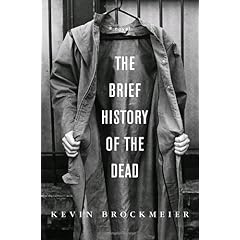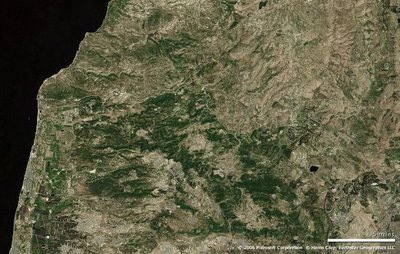
Yesterday evening, I went to read one of the blogs I frequent, and found that it and the blogster who wrote it are both gone. Click.
I was surprised by my reaction. I've seen blogs evaporate before, and all of the warning signs were present in this one. I found myself melancholy and gently stunned by the disappearance. It reminded me of the vanishing city in The Brief History of the Dead.

This ubiquitous happening unceremoniously cut a thread. (Though, I wouldn't complain if more people rose to the courtesy of deleting their blog after the third and final entry that, two years ago, began with "I'm so bored...") I find a "one step back" scenario in my effort to expand my network of writers, poets, philosophers, artists, and daydreamers.
As I looked over the bare grave-marker Profile screen, I thought back to a sweltering July evening, when I was working one of those jobs that paid the tuition for a couple of years but otherwise remains a footnote in the story of my life. I was working at a driving range, and that night found myself cursing the mosquitoes, telling myself that they were infinitely worse than they had been the previous summer. I thought I must surely be imagining this development.
Glancing over my shoulder at the baleful light coming from the tall lamps illuminating the parking lot, I realized that the phenomenon was not imagined. The dominoes in my head started falling over: the new street lights; the parking lot that now covered the half-acre stand of old trees adjacent to the range; the small army of golf ball-sized bats that had lived in the trees; the memory of watching bats diving in and out of the powerful beams of the overhead range lights; the swarms of insects that were lured into the harsh light, only to be devoured. One collapse yielded dozens of changes.
Now, I grumble to myself over the people who would have followed that lost blog to mine. Hubris. Of course, I realize that this is futile. There was no grand destiny for some reader to follow the convoluted series of sharp angles across the web to spend a moment over what I have written. If there had been, they would have gotten here, or may yet by some other route. For now, I read and write and tie more threads.








